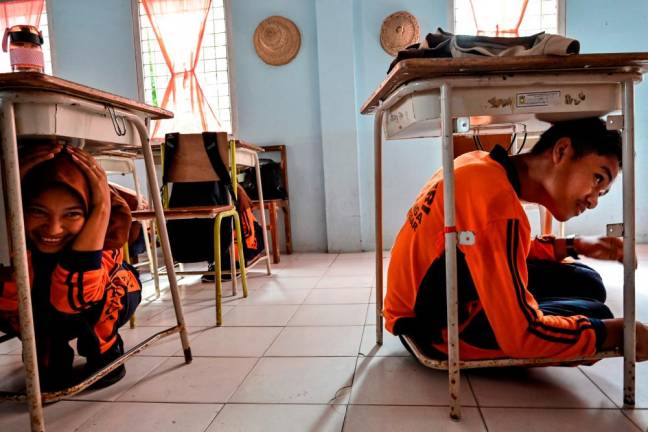PETALING JAYA: Tertiary education is an important key for students to succeed in their careers, but that path may be a long and winding one.
The recent incident involving a group of university students who wrote a letter to their lecturers, stating that too many assignments had pushed them into depression, with some wishing to commit suicide, has garnered the attention of tertiary institution educators.
Commenting on that, they said students should cultivate proper time management and prioritise education over fun activities to escape academic stress, rather than blaming the country’s higher education system.
Universiti Tunku Abdul Rahman Curriculum Development deputy head Dr Ngeow Yeok Meng, who agreed that undergraduate programmes are more stressful in comparison with the school syllabus, said assessments were not meant to burden the students but to examine their abilities.
However, she said students must have the courage to negotiate with lecturers on assignments rather than making suicidal threats.
“One of the factors behind their struggles is the arrangement of coursework because every day they have to present and attend tutorial assessments.
“But the other factor is students’ procrastination and poor time management. So, even if the academic system changes, students will still do last-minute work.
“What shocked me was the way these students threatened to end their lives. This shows a lack of negotiation to express one’s views. There is a need to cultivate cultural literacy to express emotions rather than blaming others whenever their needs are unfulfilled.”
Meanwhile, Tunku Abdul Rahman Universiti College Communication Department lecturer Pushpavalli Maniam said students who had just graduated from high school were unfamiliar with the tertiary education system as they had been spoon-fed during their schooling.
She said tutors normally assign three to four assignments per subject but it is still manageable since there will only be a maximum of six subjects in long semesters and three in short semesters.
“They (are unable to) cope with independent learning because they are familiar with the school environment and being ‘spoon-fed’. They expect lecturers to provide everything but tertiary education is all about self-effort.
“Usually, students will get three to four assignments on the weightage of each subject and the deadline follows the progression of the topic.
“The interval period for each assignment submission is normally four to five weeks. However, this may vary according to the learning outcomes.
“Some students, who are away from family, prioritise entertainment over assignments because they know that they are not being supervised,” she said.
However, Malaysian Mental Health Association president Prof Datuk Dr Andrew Mohanraj said students’ struggles to meet assignment deadlines has become worse following the introduction of e-learning.
He said e-learning has stripped away the students comfort zones, where they developed strong emotional support from friends and counsellors, since all interactions are now virtual.
“Academic formats can only be blamed in certain instances where there is undue pressure on students to meet deadlines.
“The introduction of virtual classrooms where a class is always in session has put additional pressure on students.
“The virtual environment has separated students from the usual support systems, from their friends and even from access to face-to-face counselling services on campus.”
He said social factors and family expectations regarding a child’s academic progress can also contribute to academic stress.
Therefore, he advised students to be more passionate about their interests to prevent distractions from external factors that contribute to their depression and academic stress.
Pix for representational purpose only.










